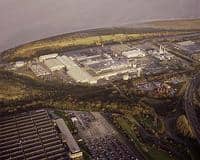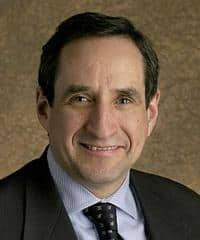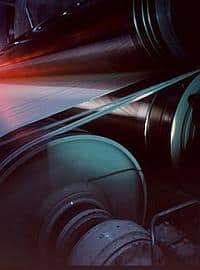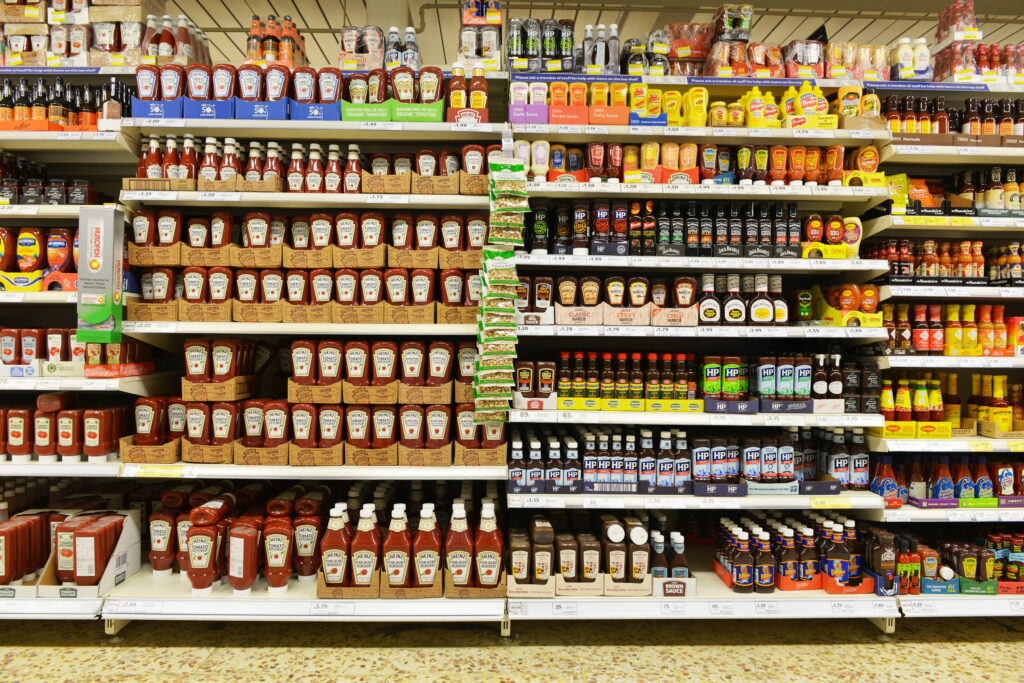Corporate branding and direction is essential but for Cheshire using the Abitibi brand means far more. The name change confirms the company's important role within Abitibi and also signals that parent company Abitibi Consolidated, the Canadian-based international paper conglomerate, really does intend to grow its business in Europe.
Ellesmere Port
While ACRE has been upbeat in its operations, the mill on Ellesmere Port has been the subject of some speculation. In the late 1990s there were rumours about the future of the mill in the wake of the creation of Abitibi-Consolidated following mergers within the paper sector. Now, any doubts that may have existed about the business seem to have been vanquished with the company's board giving a wholehearted endorsement to the UK operations with indications that growth rather in the UK and the rest of Europe is on the cards.
Mr Planet likened ACRE in recent years in the UK to “a sleeping giant. In general the newsprint industry is a low profile industry but we believe now is the time to be very public”.
For Abitibi, the UK had very modest beginnings, recalls Mr Planet. “There were a series of mergers in the 1990s – Stora with Enso and UPM with Kymmene. In 1998 Stone Consolidated owned Bridgewater and Abitibi-Consolidated was formed through the merger of Abitibi-Price and Stone-Consolidated.”
Awakening
Around that time, he reflects, there was also an awakening of interest in the idea of recycling. “It also came about at the same time that we started to take a stand on public and environmental issues, around 98-99. In the West Coast of North America there was an issue with old forests. Forest certification started to become important, recycling became an issue, and some recycling became mandatory.”
The industry, says Mr Planet, was to be more in the public eye, and the environment also became an investment issues, not only for the company itself but also customers who ere under pressure over, for example, the inks used in printing.
“Financial institutions began to say that we had to have a clear environmental policy something which was new as in the past we were basically an industrial provider.”
The period from 1999 to 2003 were relatively quiet times for Abitibi in the UK. There was some investment at Bridgewater and also Cheshire Recycling continued to expand its work with local authorities. Mr Planet concedes: “there was at this time a question about whether Abitibi was committed to Europe. If we were to grow in the UK the first thing we needed to look at was fibre and Cheshire Recycling was going to be the underpinning of the group's activities through fibre collection.”
With all the changes in legislation governing recycling and the emergence of organisations such as the Waste and Resources Action Programme, Abitibi “decided to look at the market in a very different way seeing the availability of alternative raw materials. We said the future of our industry is going to be based on two factors. One, is traditional forests and how we managed them. The second is 'how do we procure fibre in a sustainable way?'”
The fundamental decision to grow in Europe was made a few years ago, says Mr Planet. “We have had considerable development around the world and we have today 12 out of the 14 lowest cost mills in North American. We are the fifth largest supplier of newsprint to Europe, about 800,000 tonnes per annum. We recognised we needed to rebrand our image there and very publicly commit to Abitibi Consolidated Europe, increase tonnage into UK banks and that household collection needed to be leveraged.”
Growth potential
As to whether this may only be a short term move, Mr Planet is emphatic that there is longer term commitment. “Yes, our actions have to be consistent.”
In terms of market share Abitibi has about 16% of the UK market, supplying about 280-290,000 tonnes – “a small amount,” says Mr Planet. “I see tremendous growth potential in UK newsprint.UK consumption is 2.2m tonnes and only 1.2m tonnes is made here.”
Mr Planet confirms that Abitibi is now looking to expand through Bridgewater which was “always an Abitibi foothold in Europe. You have a foothold, if you have in your plans that you want to grow. If you believe you have the right platform to grow, you need the fundamentals to grow.”
So, the plan now, says Mr Planet, is “to optimise the asset base, to get Bridgewater right and then to look at next components of growth – energy and fibre. This is where we are right now – our stated goal is we are going to grow in Europe.”
How this will be achieved is still open, says Mr Planet. It could be through “acquisition, expansion, or a Greenfield site.” Also important, he says, is the power supplies available to a mill.
ACRE currently exports substantial tonnages of used newspapers and magazines to the Far East and Mr Planet says that through the subsidiary the aim is “to keep a supply to some of our Asian facilities with this material.”
But, he emphasises that the company wants “to participate in the resurgence of recycling”. And, he says that the company has enough resources, “enough to go shopping. But you also need to have the infrastructure, and you need the know-how.”
This seems to suggest expansion in the UK rather than on the continent because of the experience on the contractual side that Cheshire Recycling has given to ACRE. Says Mr Planet “If we ever did have an acquisition on the continent, then we could move forward – you could take the competency forward.”
“For Europe, it is no use saying we are going to purchase. Our strategic intent is that we believe we are going to grow. It will depend on fundamentals and the market.
He notes that there is currently a “£1.1 million quality control system going into Bridgewater, and there will be more. We are pending no less than £1-2 million a year on upgrading the mill.”
The exact plans for the UK are not yet ready to be revealed. He says: “To us the UK is a very important market and nothing is ruled out. As a company we have a strategy for each one of our assets.”
Aylesford
However, despite his reticence Mr Planet is willing to concede that one of the other UK mills might prove attractive to Abitibi. Currently in the UK Abitibi is one of the three newsprint manufacturers, the other two being Shotton owned by UPM-Kymmene and Aylesford Newsprint in Kent, owned jointly by SCA Forest Products and Mondi Europe. With Aylesford having two owners, there has been speculation in the past that they might choose to sell.
Mr Planet indicates that the purchase of the Aylesford Newsprint plant in Kent is an option that would attract his support at least. “Of course if Aylesford came up for sale, from a personal point of view at my board I would be raising my hand to look at it.”
He continues: “We do need to acquire or invest, we need to look at the future. Is it a new machine at Bridgewater or acquisition in Europe – we will be faced with choices.”
Mr Planet explains that Abitibi “hasn't tabled definite timelines yet. Over the next two years the aim is to reduce debt, to have growth plans you need to have flexibility. We need to get debt to be manageable.”
Choices
While choices are still be made in terms of mill developments, Mr Planet is very pleased with the success of ACRE (Cheshire Recycling) which is not surprising as the company now claims to be the biggest kerbside collection in the UK serving more than three million homes. “Our goal is to get into the fibre trade, to provide us for growth within Europe and so I can leverage that and support our options overseas. That is strategically valid, otherwise we would not be putting the emphasis on UK growth as without the fibre there is no opportunity for growth.”
And, for local authorities looking for service providers, it is clear that ACRE is ready and willing, and being willed on by the parent company. Mr Planet speaks of the importance of the end-user consortium, an alliance with Alcan, Corus, Berryman and the Salvation Army. He say: “Creating alliances makes sense – Alcan, Corus, it makes sense to say let's create a consortium that goes around collecting that sort of stuff. Our recycling operation has the competency to collect. We believe it gives us an advantage and it is an important component of our overall strategy.”
The next steps appear clear. Abitibi's board is set to work hard on the financial performance of the company. For the UK with the figures clearly showing that there is room for more domestic manufacturing of recycled newsprint – it should be remembered that the recent Shotton investment was in deinking capacity and not a new machine – then Abitibi could be the company that moves investment forward.












Subscribe for free